Hyundai IONIQ 5 vs Vauxhall Mokka - Differences and prices compared
Compare performance (650 HP vs 281 HP), boot space and price (38500 £ vs 23000 £) at a glance. Find out which car is the better choice for you – Hyundai IONIQ 5 or Vauxhall Mokka?
Costs and Efficiency:
When it comes to price and running costs, the biggest differences usually appear. This is often where you see which car fits your budget better in the long run.
Vauxhall Mokka has a significantly advantage in terms of price – it starts at 23000 £, while the Hyundai IONIQ 5 costs 38500 £. That’s a price difference of around 15437 £.
In terms of energy consumption, the advantage goes to the Vauxhall Mokka: with 15.40 kWh per 100 km, it’s barely noticeable more efficient than the Hyundai IONIQ 5 with 15.60 kWh. That’s a difference of about 0.20 kWh.
As for range, the Hyundai IONIQ 5 performs distinct better – achieving up to 570 km, about 167 km more than the Vauxhall Mokka.
Engine and Performance:
Power, torque and acceleration say a lot about how a car feels on the road. This is where you see which model delivers more driving dynamics.
When it comes to engine power, the Hyundai IONIQ 5 has a clearly edge – offering 650 HP compared to 281 HP. That’s roughly 369 HP more horsepower.
In acceleration from 0 to 100 km/h, the Hyundai IONIQ 5 is decisively quicker – completing the sprint in 3.50 s, while the Vauxhall Mokka takes 5.90 s. That’s about 2.40 s faster.
In terms of top speed, the Hyundai IONIQ 5 performs somewhat better – reaching 260 km/h, while the Vauxhall Mokka tops out at 209 km/h. The difference is around 51 km/h.
There’s also a difference in torque: Hyundai IONIQ 5 pulls clearly stronger with 770 Nm compared to 345 Nm. That’s about 425 Nm difference.
Space and Everyday Use:
Whether family car or daily driver – which one offers more room, flexibility and comfort?
Both vehicles offer seating for 5 people.
In curb weight, Vauxhall Mokka is significantly lighter – 1294 kg compared to 1955 kg. The difference is around 661 kg.
In terms of boot space, the Hyundai IONIQ 5 offers distinct more room – 520 L compared to 350 L. That’s a difference of about 170 L.
In maximum load capacity, the Hyundai IONIQ 5 performs noticeable better – up to 1580 L, which is about 475 L more than the Vauxhall Mokka.
When it comes to payload, Hyundai IONIQ 5 evident takes the win – 530 kg compared to 400 kg. That’s a difference of about 130 kg.
Who wins the race?
The Hyundai IONIQ 5 proves to be is largely superior and therefore becomes our DriveDuel Champion!
Hyundai IONIQ 5 is the better all-rounder in this comparison.
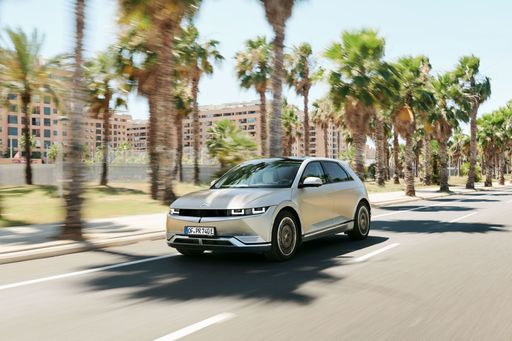
Hyundai IONIQ 5
Costs and Consumption
View detailed analysis
Engine and Performance
View detailed analysis
Dimensions and Body
View detailed analysis
Hyundai IONIQ 5
The Hyundai IONIQ 5 looks like a spaceship that moved into suburbia, pairing bold retro‑futuristic styling with a roomy, cleverly laid-out cabin that makes long trips surprisingly comfortable. Its electric character delivers instant, silky acceleration and low running costs, making it a smart, slightly cheeky pick for buyers who want tech, practicality and personality without the drama.
details
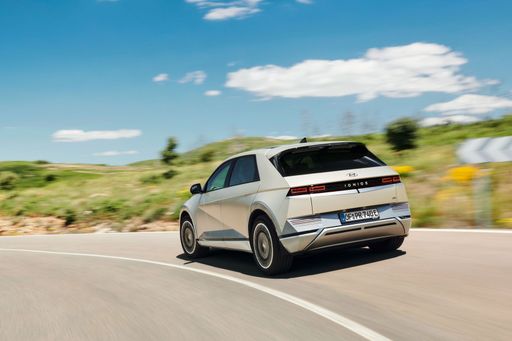
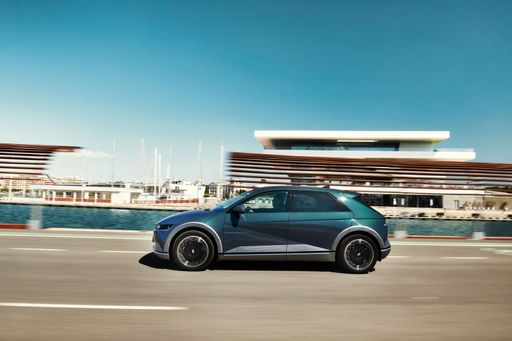
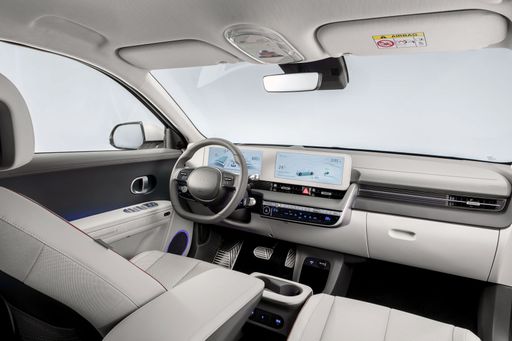
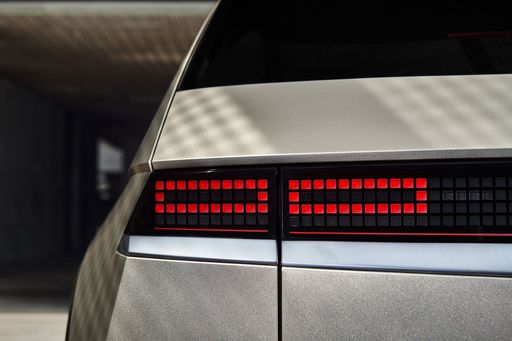
Vauxhall Mokka
The Opel Mokka cuts a smart, modern silhouette that feels right at home in the city while still turning heads on the open road. It's a practical, easy-to-live-with crossover that blends comfy driving manners with enough flair and tech to keep daily commutes interesting — and it won’t make you regret trading up.
details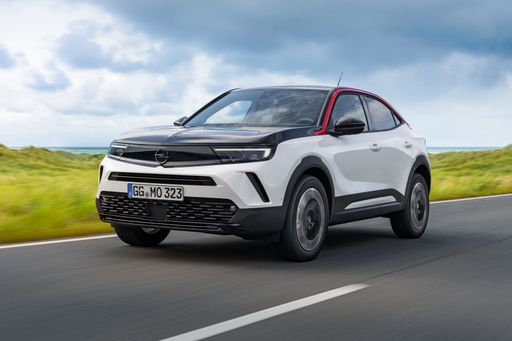
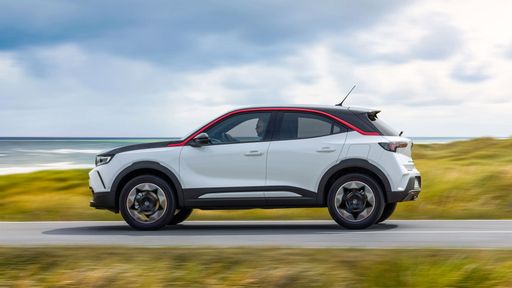
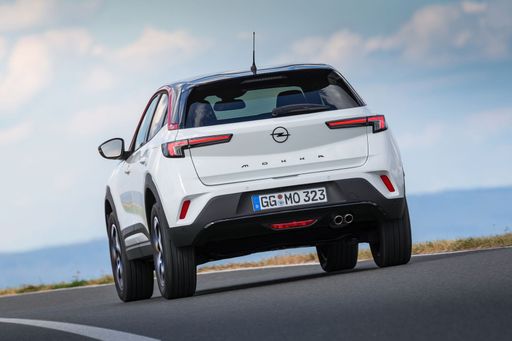
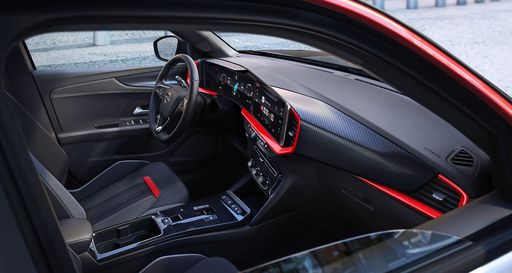
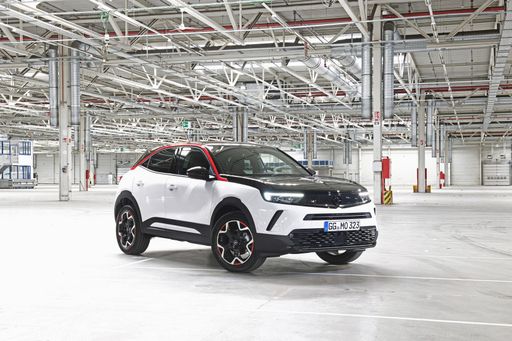

|

|
|
|
|
Costs and Consumption |
|
|---|---|
|
Price
38500 - 64200 £
|
Price
23000 - 40500 £
|
|
Consumption L/100km
-
|
Consumption L/100km
4.9 - 5.7 L
|
|
Consumption kWh/100km
15.6 - 21.2 kWh
|
Consumption kWh/100km
15.4 - 18.5 kWh
|
|
Electric Range
440 - 570 km
|
Electric Range
336 - 403 km
|
|
Battery Capacity
63 - 84 kWh
|
Battery Capacity
51 kWh
|
|
co2
0 g/km
|
co2
0 - 129 g/km
|
|
Fuel tank capacity
-
|
Fuel tank capacity
44 L
|
Dimensions and Body |
|
|---|---|
|
Body Type
SUV
|
Body Type
SUV
|
|
Seats
5
|
Seats
5
|
|
Doors
5
|
Doors
5
|
|
Curb weight
1955 - 2275 kg
|
Curb weight
1294 - 1672 kg
|
|
Trunk capacity
480 - 520 L
|
Trunk capacity
310 - 350 L
|
|
Length
4655 - 4715 mm
|
Length
4150 mm
|
|
Width
1890 - 1940 mm
|
Width
1787 mm
|
|
Height
1585 - 1605 mm
|
Height
1506 - 1535 mm
|
|
Max trunk capacity
1540 - 1580 L
|
Max trunk capacity
1060 - 1105 L
|
|
Payload
385 - 530 kg
|
Payload
388 - 400 kg
|
Engine and Performance |
|
|---|---|
|
Engine Type
Electric
|
Engine Type
Electric, Petrol MHEV, Petrol
|
|
Transmission
Automatic
|
Transmission
Automatic, Manuel
|
|
Transmission Detail
Reduction Gearbox
|
Transmission Detail
Reduction Gearbox, Dual-Clutch Automatic, Manual Gearbox
|
|
Drive Type
Rear-Wheel Drive, All-Wheel Drive
|
Drive Type
Front-Wheel Drive
|
|
Power HP
170 - 650 HP
|
Power HP
136 - 281 HP
|
|
Acceleration 0-100km/h
3.5 - 8.5 s
|
Acceleration 0-100km/h
5.9 - 9 s
|
|
Max Speed
185 - 260 km/h
|
Max Speed
150 - 209 km/h
|
|
Torque
350 - 770 Nm
|
Torque
230 - 345 Nm
|
|
Number of Cylinders
-
|
Number of Cylinders
3
|
|
Power kW
125 - 478 kW
|
Power kW
100 - 207 kW
|
|
Engine capacity
-
|
Engine capacity
1199 cm3
|
General |
|
|---|---|
|
Model Year
2024 - 2025
|
Model Year
2024 - 2025
|
|
CO2 Efficiency Class
A
|
CO2 Efficiency Class
A, C, D
|
|
Brand
Hyundai
|
Brand
Vauxhall
|
What drive types are available for the Hyundai IONIQ 5?
The Hyundai IONIQ 5 is available as Rear-Wheel Drive or All-Wheel Drive.
The prices and data displayed are estimates based on German list prices and may vary by country. This information is not legally binding.
